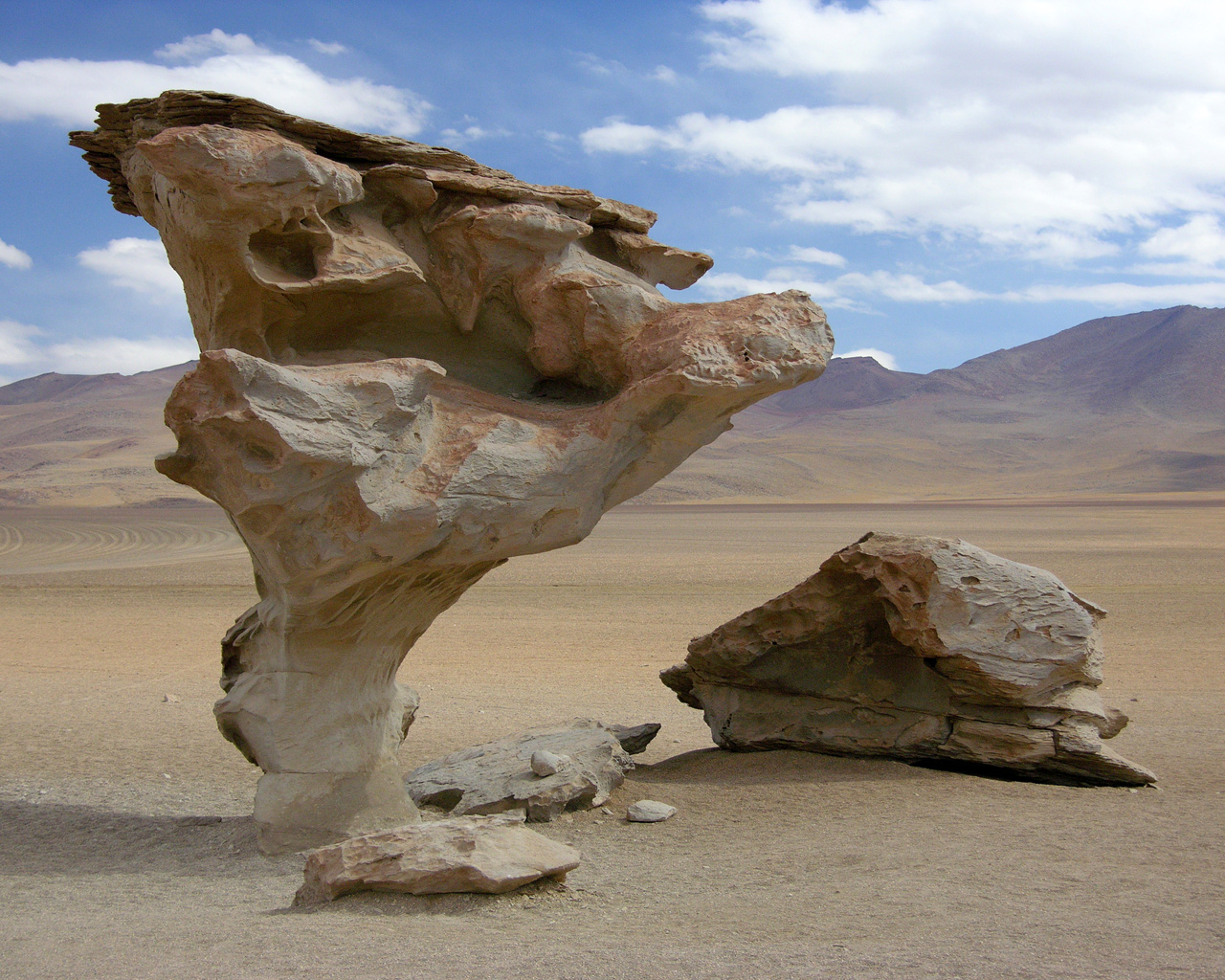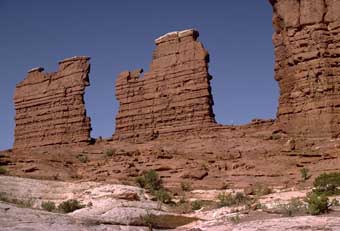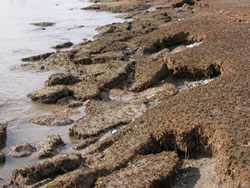Q: What is
the difference between weathering and erosion?
Weathering is the process of decomposing,
breaking up, or
changing the
color of rocks. Weathering may be caused by the action of water, air,
chemicals, plants, or animals.
Chemical
weathering involves chemical changes in the minerals of the rock, or on
the surface of the rock, that make the rock change its shape or color. Carbon
dioxide, oxygen, water, and acids may all cause chemical weathering.
Mechanical weathering is the process of breaking a large
rock into smaller pieces
without
changing the minerals in the rock. Mechanical weathering may be caused by
frost, ice, plant roots, running water, or heat from the sun.
Once the small pieces of rocks are changed or
broken apart by weathering, they may start to be moved by wind, water, or ice.
When the smaller rock pieces (now pebbles, sand or soil) are moved by these
natural forces, it is called erosion.
So, if a rock is changed or broken but stays where it is, it is called
weathering. If the pieces of
weathered rock are moved away, it is called erosion.
Images for
weathering and erosion:
Weathering and Erosion
Release of pressure from the rock














